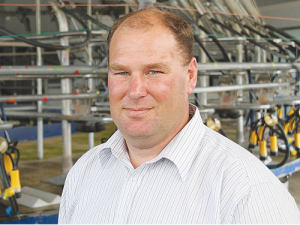Farmers’ bank satisfaction is at its lowest and their financial pressure at its highest since 2015, reveals the Federated Farmers November Banking Survey.
The Research First-conducted survey of 750 farmers shows the lowest bank satisfaction level recorded in any of the 10 surveys conducted since 2015. Since May, bank satisfaction has fallen 5% to 73.7% of farmers saying they were satisfied or very satisfied with their bank.
"The results show a need for renewed efforts to improve relationships between farmers and banks," says Federated Farmers economics and commerce spokesperson Andrew Hoggard.
"It also underlines the fact that farm debt mediation - voluntary ideally, but mandatory if necessary - would be a useful tool in the tool kit. We look forward to the Government advancing a Farm Debt Mediation Bill after the original NZ First Member’s Bill was withdrawn a few months back for improvement," says Hoggard.
Bank satisfaction levels remained steady, at 69%, for sharemilkers. One factor may be that average interest rates for sharemilkers dropped from 5.8% to 5.3%, bringing them closer to the average rate for all farm types, at 5.2%.
Dairy farmers, who have the largest mortgages by dollar value, on average experienced a drop in their total dairy debt of about $375,000 to $4,686,000. But for sharemilkers, averages mortgages went from $1,022,000 to $1,299,000 in the last six months.
As a group, more farmers (11.6%) reported feeling "undue pressure" from their banks than at any time since August 2015, though that was only a 2 percentage point rise between May and November. However, the average increase in that feeling of undue pressure from dairy farmers went up 4.4% in the six-month period, and for sharemilkers it was even higher, at 5.5%. It means nearly a quarter of sharemilkers now feel they are under undue pressure.
"An increase in pressure may seem counterintuitive considering dairy farmers’ incomes and profitability have been recovering after the 2014-16 downturn," says Hoggard.
"Banks generally stood by their dairy clients during that downturn and allowed them to increase debt to get through. But hardly surprisingly, now that times are better - notwithstanding a recent drop in milk prices - banks want farmers to pay debt down."
New Zealand Bankers’ Association acting chief executive Antony Buick-Constable says that while the overall result is down, "we’re pleased to see most farmers remain satisfied with their bank.
"Our banks stand by their agri-clients in good times and bad. That was particularly evident during the dairy downturn. It makes sense for farmers to have a look at their financial management in better times.
"We’ve previously looked at introducing a clearer farm debt mediation framework, and look forward to working with the government on this initiative."



















